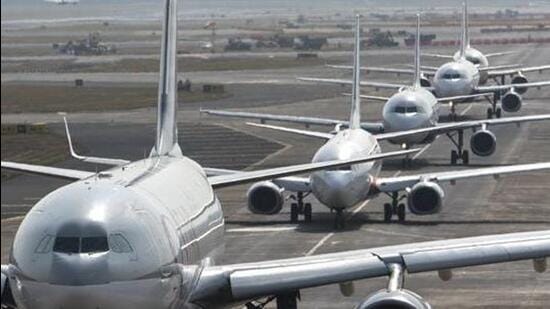DGCA issues draft rules on ATC staff work shifts
Section 9 of the draft CAR, which relates to airspace and air navigation services standards, puts a stress on duty hour limitations and mandatory rest for air traffic controllers.
Air traffic controllers will be allowed to work for only a specified number of hours at a stretch to avoid fatigue at work, similar to limitations applied to air crew, India’s aviation regulator decided on Tuesday to be in sync with international safety standards.

“We have issued a draft CAR (civil aviation requirement) as of now. The final regulation will be issued after extensive public consultation,” said Arun Kumar, director general of civil aviation. “We have tried to align it to International Civil Aviation Organization (ICAO) standards and have incorporated the global best practices.”
Section 9 of the draft CAR, which relates to airspace and air navigation services standards, puts a stress on duty hour limitations and mandatory rest for air traffic controllers.
A controller’s night shift will start at 1.30am and end at 5.29 am and no rostered shift will begin or end between midnight and 6am, the new rules said.
No air traffic controller will perform any safety related tasks when he or she is fatigued, the draft rules said. “The duty period shall not exceed 12 hours. No more than 6 consecutive days of duty shall be worked. A duty which covers all or part of the period of night duty shall not exceed 10 hours. No more than 2 consecutive duties shall be worked which cover all or part of the period of night duties,” the draft CAR said.
No operational duty should exceed two hours, without there being a break not less than 30 minutes taken during or at the end of that period, the directorate said. “Breaks shall include all measures necessary to ensure that ATCOs will not be suffering fatigue. Such measures include a certain detachment from the operation, e.g. rest areas, some of which shall afford the individual ‘quiet space’ and facilities for adequate refreshment.”
In unforeseen operational circumstances at an air traffic services station, the supervising officer may modify watch duty time limitations but must obtain an approval later from higher authorities. Such modifications may only be made to overcome unforeseen difficulties at the unit, provided that modification only be made if the safety and effectiveness of air traffic control has to be maintained, the draft rules stipulated.
Air traffic service provider must develop and maintain a fatigue management policy for controllers. Duty rosters have to prepared at least five days in advance for 30 days, it said. The regulator may conduct inspections and audits of air traffic services personnel at any time to ensure compliance.
Some controllers were not entirely happy with the new draft rules. “If the DGCA (directorate general of civil aviation) wants to adopt global standards, then they should provide us facilities as per global standards,” one of them said on condition of anonymity.






